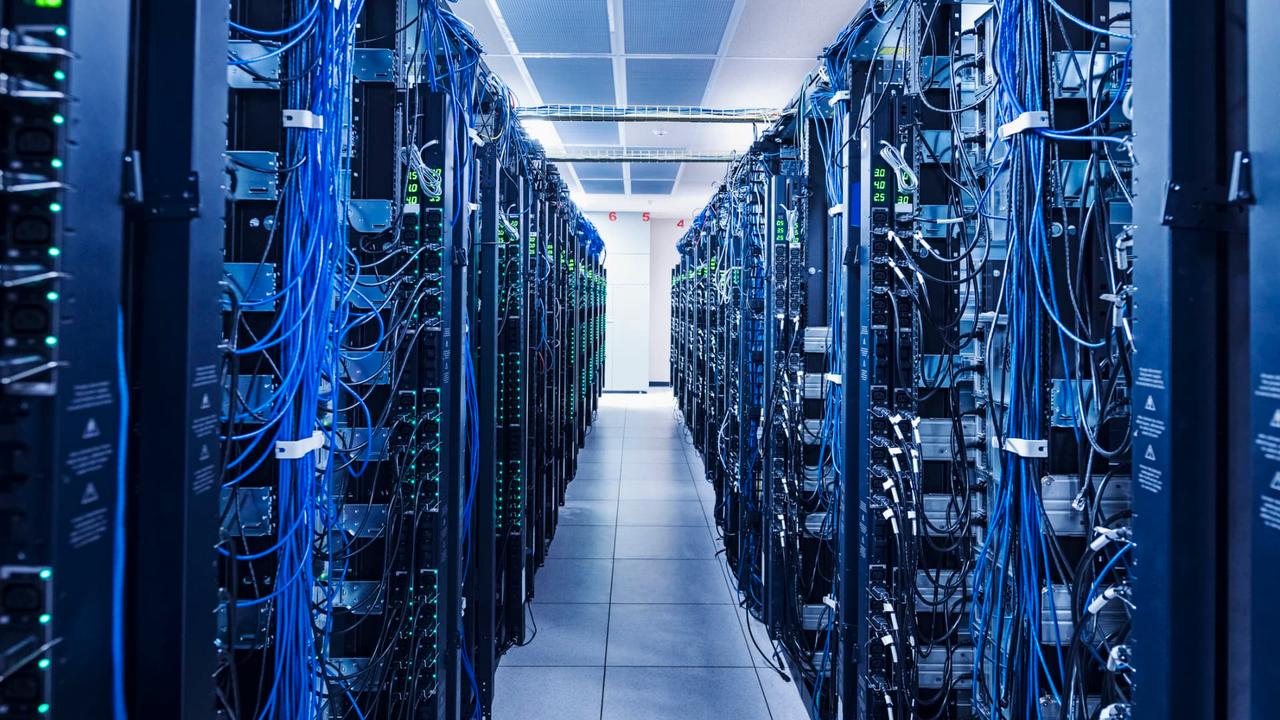UK Government Designates Data Centers as Critical National Infrastructure
3 Sources
3 Sources
[1]
UK data centres to be designated critical infrastructure
Data centres will be given greater protections from cyber attacks and IT outages as ministers introduce safeguards to bolster investor confidence in the UK. Science and technology secretary Peter Kyle will announce on Thursday that sites storing NHS, financial and personal smartphone data will be designated as critical national infrastructure (CNI). The new classification means data centres will be provided with additional government support in anticipating and recovering from emergencies, including through the creation of a dedicated CNI data infrastructure team of senior officials. The team will monitor potential threats and co-ordinate priority access to government security agencies, including the National Cyber Security Centre, and emergency services. Kyle told the Financial Times that the government was "doing everything we can" to boost the "magnetic market" in digital infrastructure to power wider economic growth. The plans, first drawn up by the previous Conservative administration, are designed to minimise the impact on the economy of any critical incidents that affect data centres, including environmental disasters and extreme weather events. Government officials hope the move will also deter cyber criminals from targeting data centres in the UK. It comes after two significant incidents this year highlighted the need for greater resilience from a range of threats. A ransomware attack disrupted healthcare for thousands of patients at London hospitals and a faulty CrowdStrike software update sparked an unprecedented global computing outage. Ministers say the improved protections for UK data infrastructure will offer reassurance to investors considering setting up businesses in Britain, as Prime Minister Sir Keir Starmer emphasises economic growth and wealth creation as his administration's primary mission. It is the first CNI designation in almost a decade, after the space and defence sectors were awarded the status in 2015, joining energy and water systems. Alongside the government's announcement, proposals for a £3.75bn investment in Europe's largest data centre in Hertfordshire will be unveiled on Thursday. Data company DC01UK has submitted a planning application to Hertsmere Borough Council for the centre, which it says will create 500 construction jobs and 200 permanent on-site roles, as well as support 13,740 data and tech jobs across the country. It came after Chancellor Rachel Reeves confirmed on Wednesday that Amazon Web Services plans to invest £8bn in the UK over the next five years on building, operating and maintaining data centres. Kyle said the government's plans were "very investment-friendly and very community friendly" because they will "create jobs and wealth". He added that Labour was taking action to address the big three demands from industry regarding building data centres: remove planning barriers, reduce regulation barriers and improve the access -- and cost of -- electricity, including from renewable sources as technology companies aim to meet net zero targets. Starmer's government has made clear it wants to significantly expand the network of data centres across the UK over the next decade by reducing the red tape around their construction and providing favourable conditions for companies investing in the sector. The new government has already indicated it would intervene to potentially grant planning permission to two proposed data centre projects on greenbelt land in Hertfordshire and Buckinghamshire, which had been blocked under the previous Conservative administration. Supporting the construction of data centres provides a convenient avenue for the government to demonstrate a commitment to investing in Britain's digital economy and its burgeoning artificial intelligence sector without having to provide any upfront capital, at a time when Whitehall departments are being asked to make significant cuts.
[2]
Data centres deemed 'critical infrastructure' by government By Proactive Investors
Proactive Investors - Data centres have received the first critical national infrastructure designation in nearly a decade, labelling them as important as the likes of the NHS and water supply. Britain's government announced the move on Thursday, explaining data centres would be prioritised for support during incidents such as cyber-attacks or extreme weather. "Data centres are the engines of modern life, they power the digital economy and keep our most personal information safe," technology secretary Peter Kyle commented. "Bringing data centres into the critical national infrastructure regime will allow better coordination and cooperation with the government against cyber criminals and unexpected events." The government added CrowdStrike's IT outage earlier in the summer had hit 60% of UK doctor's surgeries, showing the "catastrophic impact of IT and cyber threats on people's lives". Data centres join 12 other sectors on the UK's critical infrastructure list, with the space and defence sectors having gained the status in 2015. Such centres are set to become increasingly important as demand for artificial intelligence picks up, with Amazon (NASDAQ:AMZN) Web Services announcing Wednesday it would invest £8 billion to build data sites in the UK, joining Microsoft (NASDAQ:MSFT) and Google (NASDAQ:GOOGL) in similar plans.
[3]
UK classes data centres as 'critical infrastructure'
This is the first addition to the CNI in almost a decade after space and defence were added to the list in 2015. The UK government has today (12 September) announced the designation of data centres as critical national infrastructure (CNI), putting them on equal footing with vital services such as water, energy and emergency systems. "Bringing data centres into the critical national infrastructure regime will allow better coordination and cooperation with the government against cyber criminals and unexpected events," said UK secretary of state for science, innovation and technology Peter Kyle. Data centres host a vast array of information - from NHS records and critical financial information to smartphone data. The CNI designation will ensure that the sector receives greater government support during outages, cyberattacks and adverse weeather events. Part of the designation is the setting up of a dedicated CNI data infrastructure team of senior government officials who will monitor and anticipate potential threats, provide prioritised access to security agencies and coordinate access to emergency services if needed. This is the first addition to the CNI list in almost a decade after space and defence were added to the list in 2015. A total of 13 sectors make up the list of CNI in the UK. The previous government began discussions to include data centres on the list in December of last year. This announcement comes a day after Amazon Web Services (AWS), a leading cloud computing platform provider, revealed plans to invest £8bn into the UK's digital infrastructure over the next five years. The UK government also welcomed the announcement by DC01UK of a major investment for a data centre in Hertfordshire. "The huge £3.75bn private investment announced today in Hertfordshire is a vote of confidence in those plans and a clear example of my determination to ensure technological advancements are helping to grow our economy and create wealth across the country," Kyle said. Data centres and energy demand Kyle described data centres as "the engines of modern life". "They power the digital economy and keep our most personal information safe." However, despite the need for data centres in an increasingly digitised society, many have concerns about the massive amounts of energy used by these data behemoths. Currently, data centres account for 4pc of global electricity consumption and 1pc of global greenhouse gas emissions, with these figures only expected to rise. In the UK, energy consumed by data centres has risen by 400pc since 2015, and studies suggest that the AI industry, a part of what's causing a data centre boom, could be independently consuming as much energy as the Netherlands by 2027. In Ireland, data centres now consume 21pc of metered electricity, a sharp rise from the 5pc share it held in 2015. And data centres are expected to consume nearly a third of Ireland's total electricity by 2026. This enormous consumption comes at the cost of grid stability and the natural resources that are sharply depleting because of human technological pursuits in the era of the climate crisis. Don't miss out on the knowledge you need to succeed. Sign up for the Daily Brief, Silicon Republic's digest of need-to-know sci-tech news.
Share
Share
Copy Link
The UK government has officially classified data centers as Critical National Infrastructure (CNI), recognizing their crucial role in the digital economy and national security. This move aims to enhance the resilience and protection of these vital facilities.

Data Centers Gain Critical National Infrastructure Status
The UK government has taken a significant step in recognizing the importance of data centers by officially designating them as Critical National Infrastructure (CNI). This decision, announced by the Department for Science, Innovation and Technology (DSIT), underscores the crucial role these facilities play in supporting the country's digital economy and national security
1
.Implications of CNI Status
The new classification brings data centers under increased government oversight and protection. As CNI, these facilities will now be subject to enhanced security measures and will receive priority attention during national emergencies. This move is expected to bolster the resilience of the UK's digital infrastructure, ensuring the continuity of essential services that rely on data centers
2
.Industry Response and Collaboration
The decision has been welcomed by industry leaders, including TechUK, a trade association representing the technology sector. Emma Fryer, TechUK's associate director for data centers, praised the government's approach, highlighting the collaborative effort between the industry and authorities in developing this policy
3
.Economic and Strategic Importance
Data centers form the backbone of the UK's £150 billion digital economy, supporting critical services across various sectors. The CNI designation acknowledges their role in underpinning essential functions such as communications, finance, and public services. This recognition is particularly crucial as the UK aims to position itself as a global leader in emerging technologies like artificial intelligence
1
.Related Stories
Future Developments and Challenges
While the CNI status brings benefits, it also introduces new responsibilities for data center operators. The government is expected to work closely with the industry to develop specific guidelines and regulations to ensure compliance with CNI standards. This may include measures to enhance physical and cybersecurity, improve disaster recovery capabilities, and ensure sustainable operations
2
.Global Context and Competitiveness
The UK's decision aligns with similar moves by other countries recognizing the strategic importance of data infrastructure. This step is likely to enhance the UK's attractiveness as a location for data-intensive businesses and could potentially influence global standards for data center operations and security
3
.References
Summarized by
Navi
[3]
Related Stories
US Tech Giants Invest £6.3 Billion in UK Data Centers, Boosting AI Infrastructure
15 Oct 2024•Business and Economy

Amazon Web Services CEO Calls for Nuclear Power Expansion to Meet AI Data Center Energy Demands in UK
16 May 2025•Business and Economy

UK Experts Call for Mandatory Reporting of AI Data Center Resource Consumption Amid Environmental Concerns
07 Feb 2025•Technology

Recent Highlights
1
OpenAI secures $110 billion funding round from Amazon, Nvidia, and SoftBank at $730B valuation
Business and Economy

2
Pentagon accepts OpenAI's autonomous weapons restrictions after blacklisting Anthropic
Policy and Regulation

3
Trump orders federal agencies to ban Anthropic after Pentagon dispute over AI surveillance
Policy and Regulation





